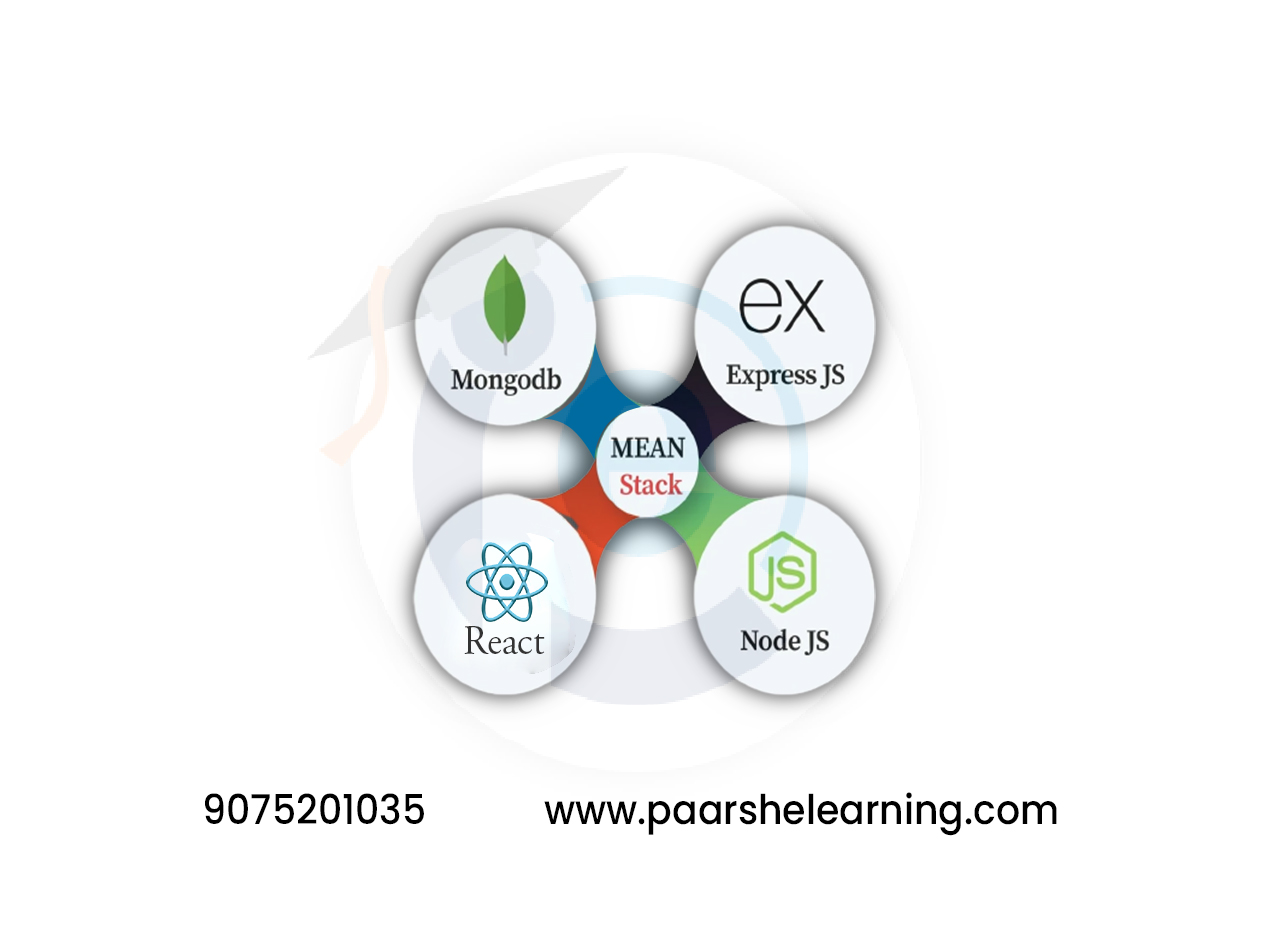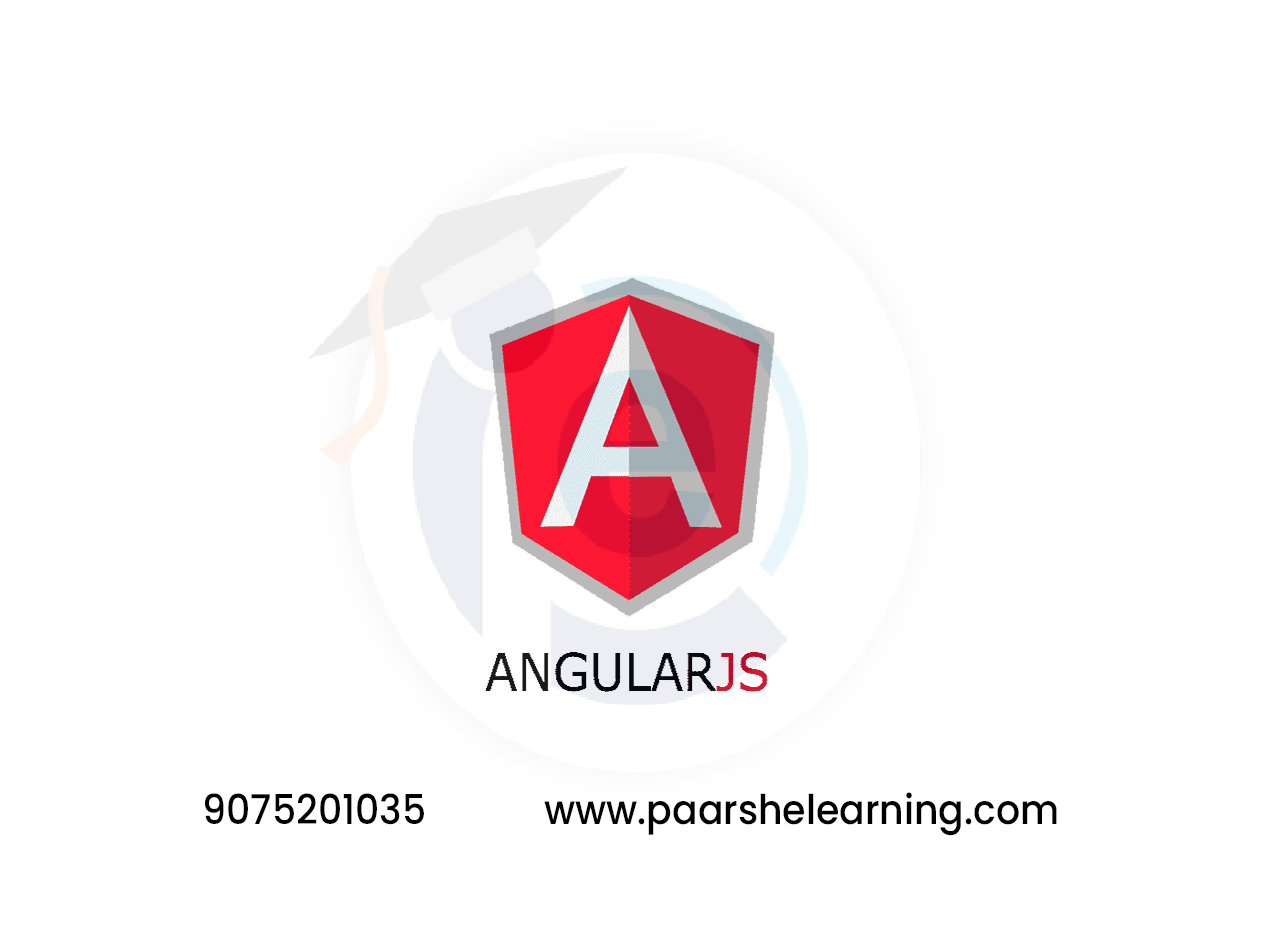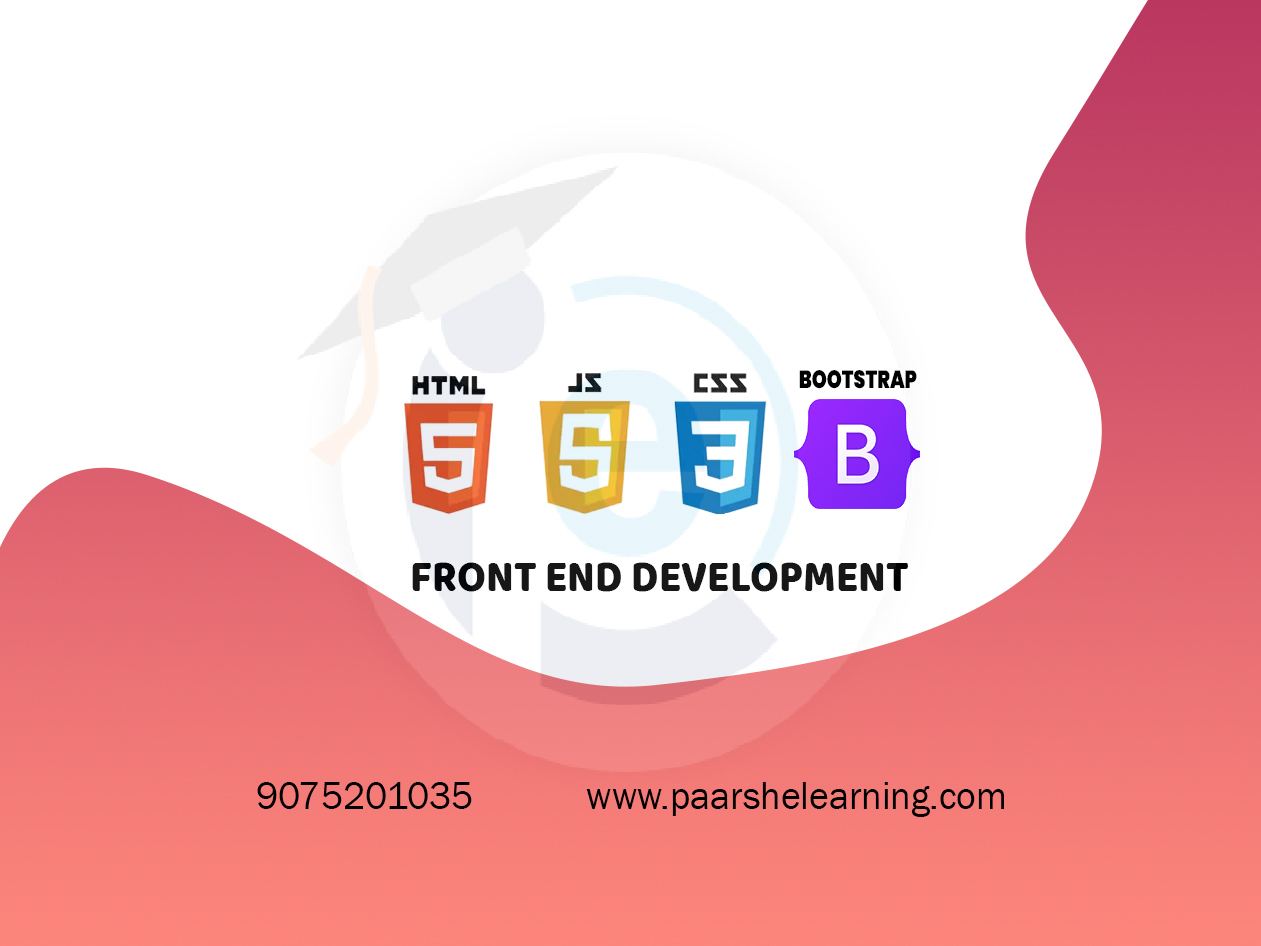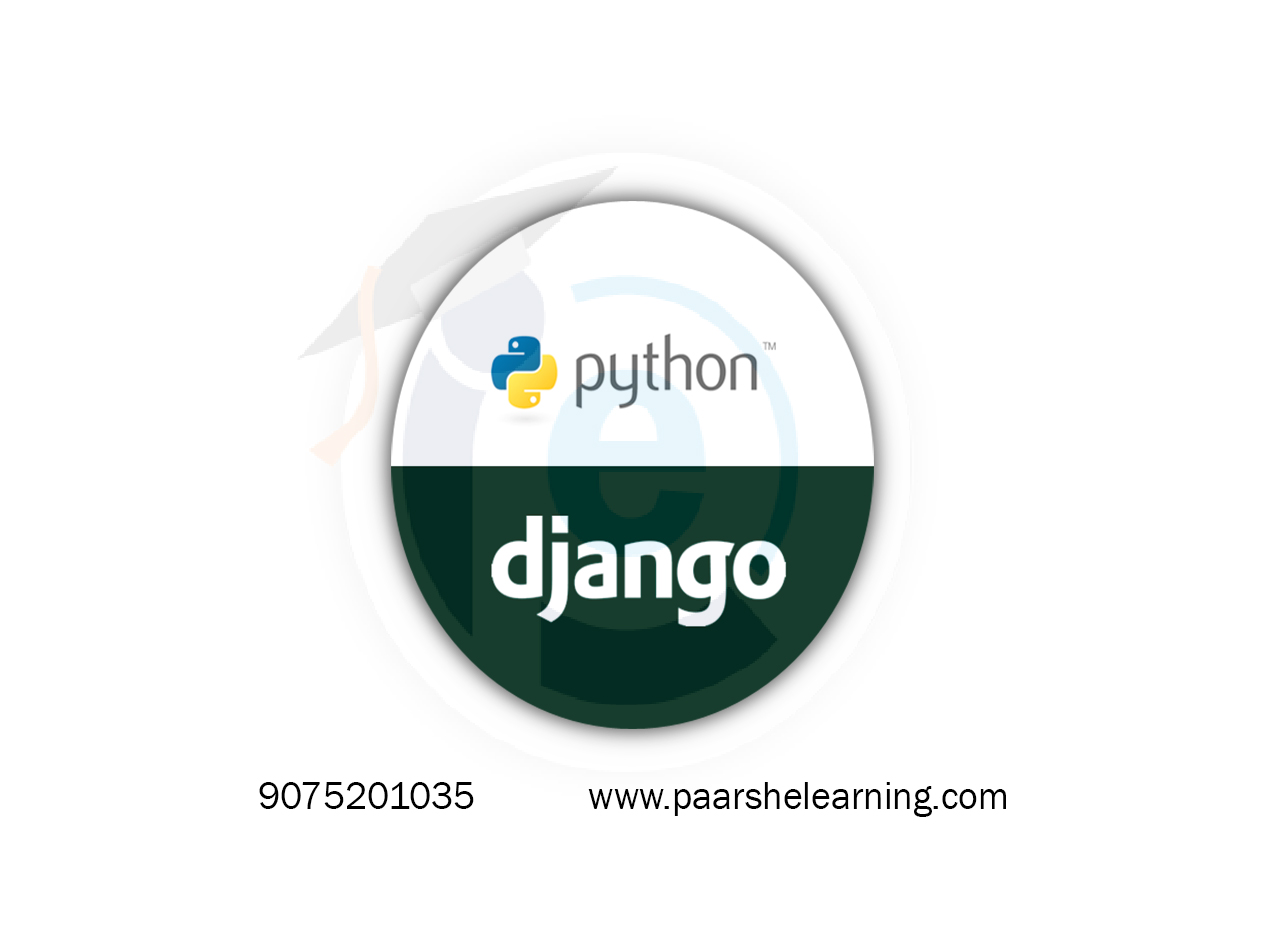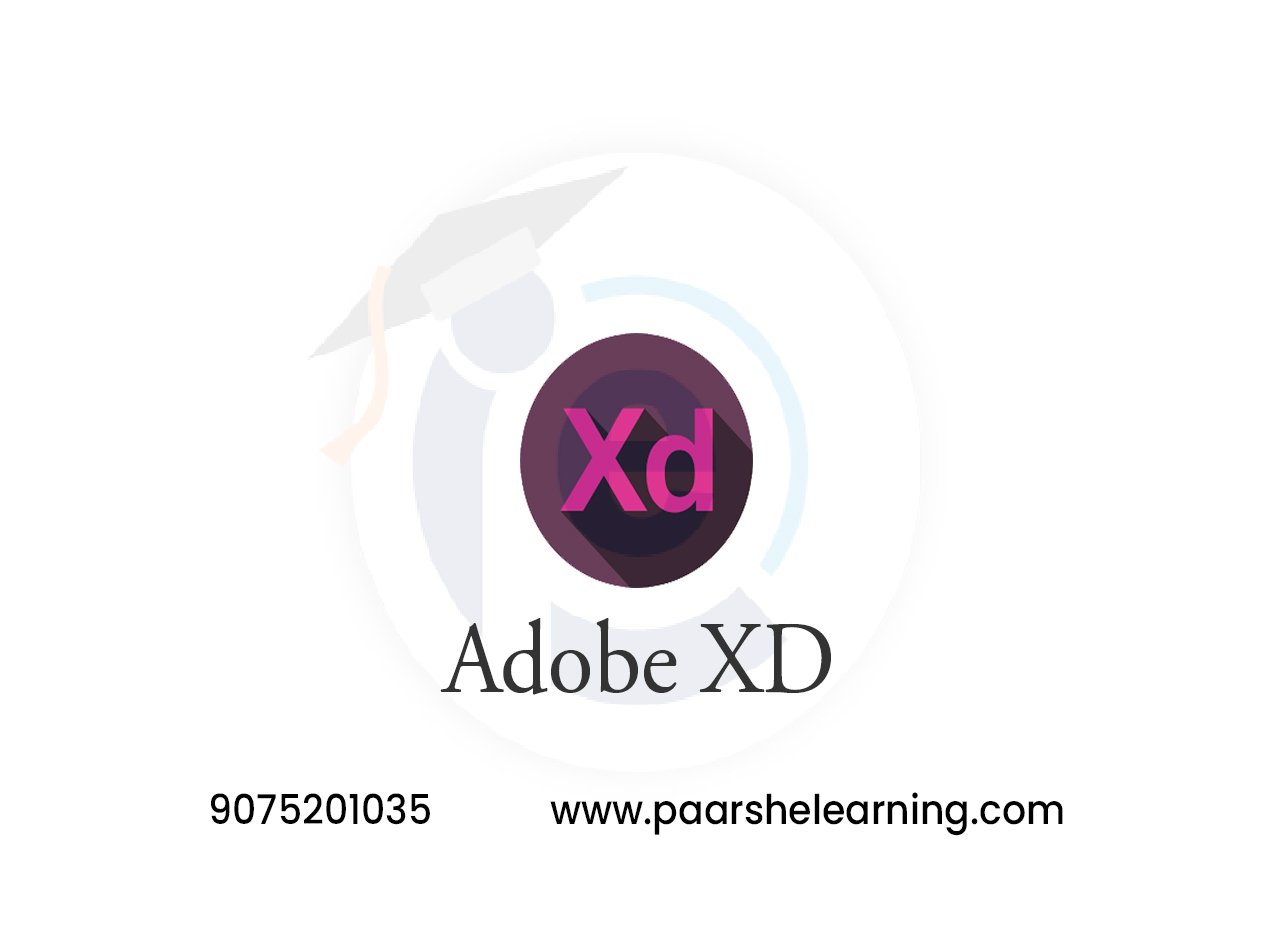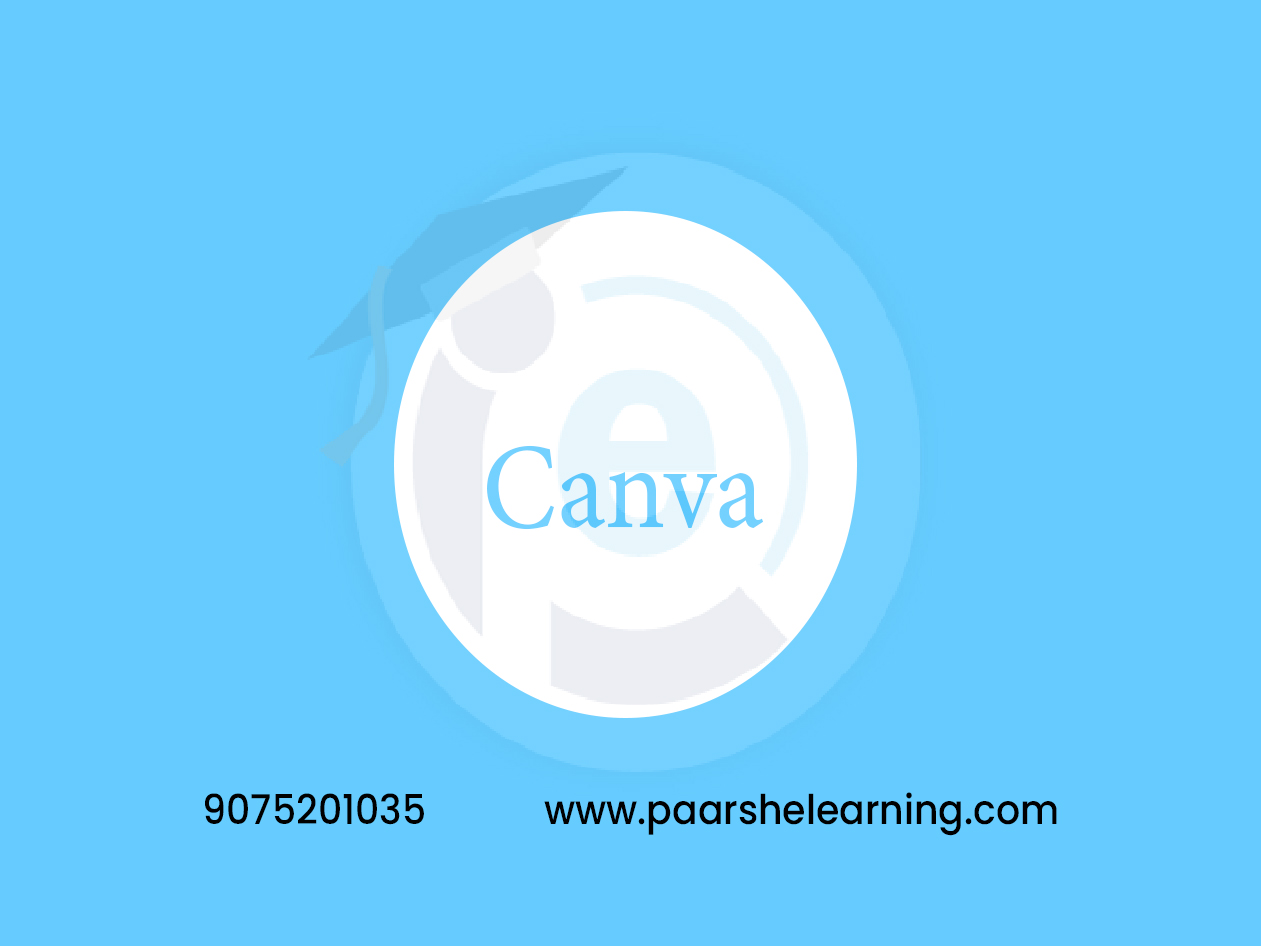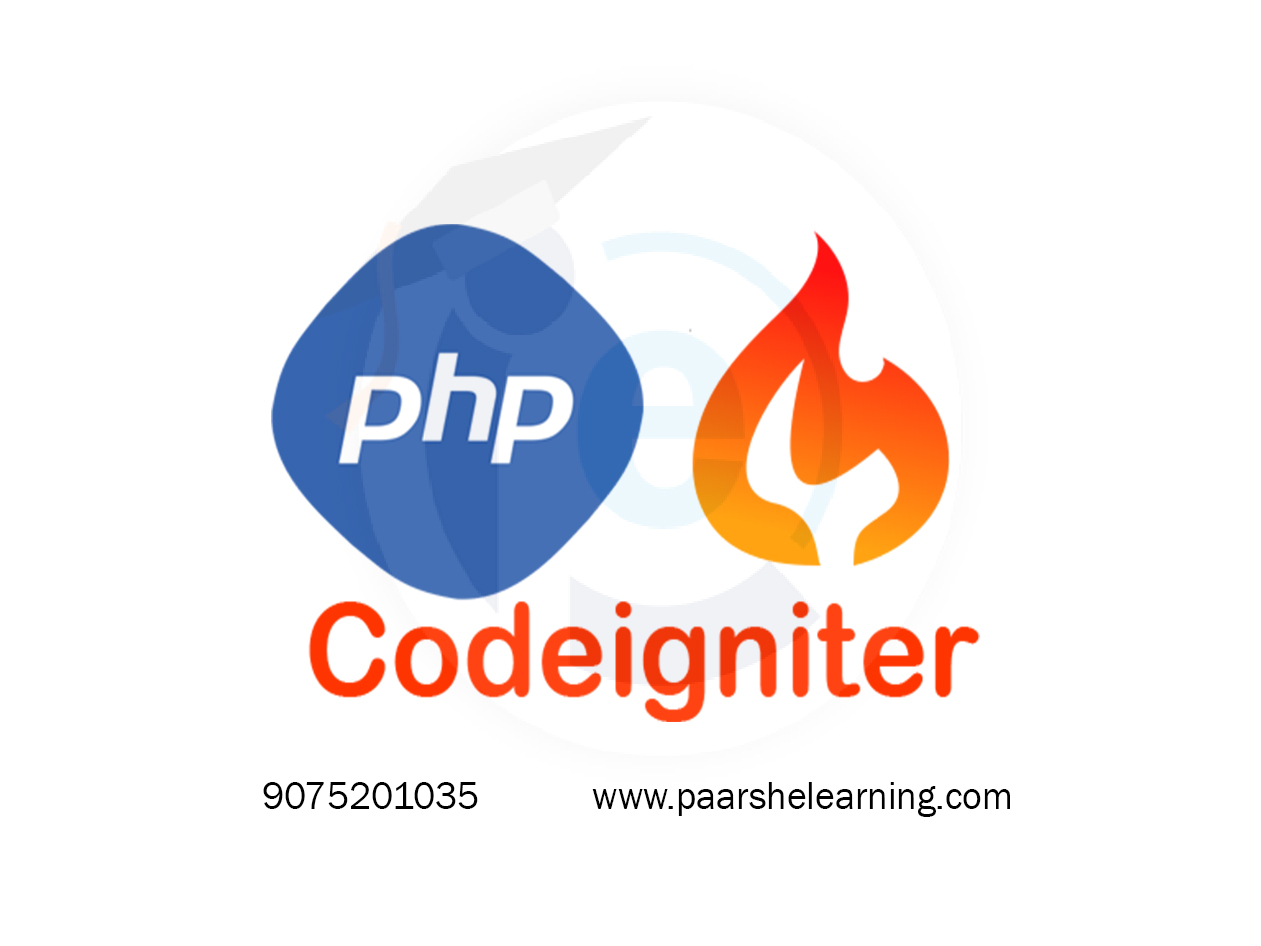- MongoDB: Students learn how to install and set up MongoDB, create collections and documents, and perform CRUD (create, read, update, delete) operations.
- Express.js: Students learn how to use Express.js to build APIs and web applications, handle requests and responses, and manage middleware.
- React: Students learn how to create components, manage state and props, use React hooks, and build reusable UI elements
- Node.js: Students learn how to use Node.js to build server-side applications, handle requests and responses, and use packages and libraries
- MERN Stack integration: Students learn how to integrate the different components of the MERN stack to build full-stack web applications. They learn how to use the MERN stack to build real-world projects, including e-commerce websites, social media applications, and more.
MERN Stack Development (MongoDB, Express.js, React, NodeJS)
Course description
MERN Stack Development refers to building web applications using a combination of MongoDB, Express.js, React, and Node.js. Each component of the MERN stack serves a specific purpose in the development process. Here's an overview of each component:
-
MongoDB: MongoDB is a NoSQL database that stores data in a flexible, JSON-like format called BSON. Learn how to work with MongoDB to define collections and documents, perform CRUD operations (Create, Read, Update, Delete), and utilize features like indexing and aggregation.
-
Express.js: Express.js is a web application framework for Node.js that simplifies the process of building web applications and APIs. Learn how to create routes, handle HTTP requests and responses, and implement middleware for tasks such as request parsing, authentication, and error handling.
-
React: React is a JavaScript library for building user interfaces. It allows you to create reusable UI components and manage the application's state efficiently. Learn how to build dynamic and interactive user interfaces using React's component-based architecture, JSX syntax, and virtual DOM.
-
Node.js: Node.js is a JavaScript runtime built on Chrome's V8 JavaScript engine. It allows you to run JavaScript on the server side. Learn how to build the back-end of your application using Node.js, handle server-side logic, interact with databases, and implement RESTful APIs.
When learning MERN Stack Development, here are the key areas to focus on:
-
JavaScript: Develop a strong understanding of JavaScript, as it is the primary language used in the MERN stack. Learn about variables, data types, control structures, functions, and object-oriented programming concepts.
-
MongoDB and NoSQL Concepts: Understand the fundamentals of MongoDB and NoSQL databases. Learn how to install MongoDB, create databases and collections, perform CRUD operations, and work with data structures like JSON and BSON.
-
Express.js Framework: Learn the Express.js framework and its features for building web applications and APIs. Understand how to create routes, handle middleware, implement authentication and authorization, and handle errors and exceptions.
-
React Library: Familiarize yourself with React and its concepts for building user interfaces. Learn how to create functional and class components, use JSX syntax, manage state, handle events, and navigate between components.
-
Node.js Fundamentals: Develop a solid understanding of Node.js and its core modules. Learn how to set up a Node.js project, handle server-side logic, interact with databases, and implement RESTful APIs using frameworks like Express.js.
-
Full Stack Development: Learn how to integrate the different components of the MERN stack to build end-to-end web applications. Understand how to connect React with the Express.js back-end, consume APIs, handle authentication and authorization, and perform data operations with MongoDB.
-
Deployment and Hosting: Learn how to deploy and host MERN stack applications. Understand how to configure servers, set up databases, handle security considerations, and manage the deployment process effectively. Explore deployment options such as using cloud platforms like AWS or deploying to a PaaS provider like Heroku.
What you will learn from this course?
This course includes!
- Daily Live session
- A recorded session with problem-solving material
- Access on Mobile and TV
- Certificate of completion
- Recommendation Letter
- 100% Job Placements
This course is for
- Web developers who want to expand their knowledge and skills in full-stack development using the MERN stack.
- Front-end developers who want to learn how to build back-end applications using Node.js and Express.js.
- Back-end developers who want to learn how to build dynamic and interactive user interfaces using React.
Prerequisites for this course
- Strong knowledge of HTML, CSS, and JavaScript: To be able to follow the course, students should have a strong understanding of the basics of web development, including HTML, CSS, and JavaScript. This includes concepts like the Document Object Model (DOM), CSS selectors, and JavaScript syntax.
- Understanding of basic programming concepts: Students should have a basic understanding of programming concepts like variables, loops, and functions.
- Experience with Node.js and npm: As the MERN stack includes Node.js, students should have some experience with Node.js and the Node Package Manager (npm), including installing packages, creating modules, and running scripts.
Mern Stack Development (mongodb, Express.js, React, Nodejs) Syllabus
-
Introduction To Mern Stack
Overview of MERN stack components Understanding the role of MongoDB, Express.js, React, and Node.js Setting up the development environment
-
Introduction To Mongodb
Overview of MongoDB and NoSQL databases Installing and configuring MongoDB Creating databases and collections CRUD operations using MongoDB
-
Building Restful Apis With Express.js
Introduction to Express.js framework Setting up an Express.js application Creating routes and handling HTTP requests Implementing CRUD operations using Express.js and MongoDB
-
Front-end Development With React
Introduction to React framework Creating React components, JSX, and props State and lifecycle management in React Handling events and user interactions
-
Advanced React Concepts
Working with forms and input validation in React Using React Router for navigation State management with React Context and hooks Consuming RESTful APIs using React
-
Node.js And Back-end Development
Introduction to Node.js Setting up a Node.js application Handling asynchronous operations with callbacks and Promises Building back-end APIs using Node.js and Express.js
-
Integrating React With Express.js And Mongodb
Connecting the front-end (React) with the back-end (Express.js) Implementing authentication and authorization Using JSON Web Tokens (JWT) for secure communication Storing and retrieving data from MongoDB
-
Deployment And Final Project
Deploying MERN stack applications to hosting environments Managing different environment configurations Building a complete MERN stack web application Final project: Developing a fully functional web application using the MERN stack
-
Paarsh E-Learning encourags hands-on practice, assignments, and projects throughout the course to reinforce students' understanding of MERN stack development. Assign practical exercises that involve building interactive web applications, integrating front-end and back-end components, and working with MongoDB, Express.js, React, and Node.js. Cover both theoretical concepts and practical applications to provide a well-rounded learning experience.
